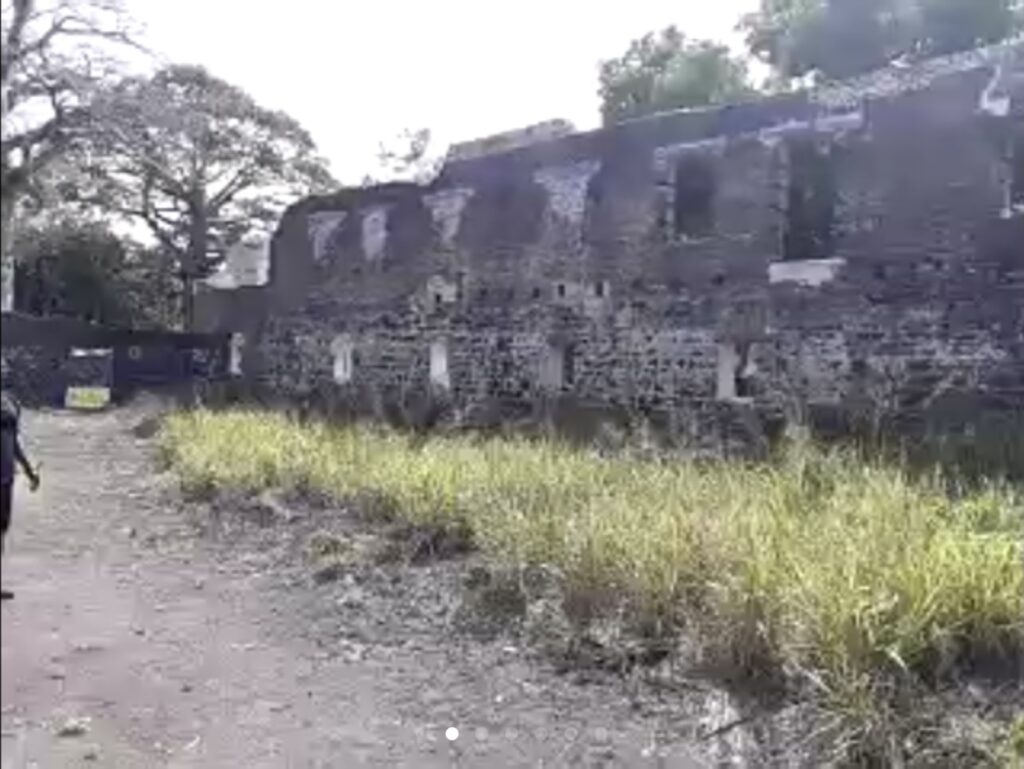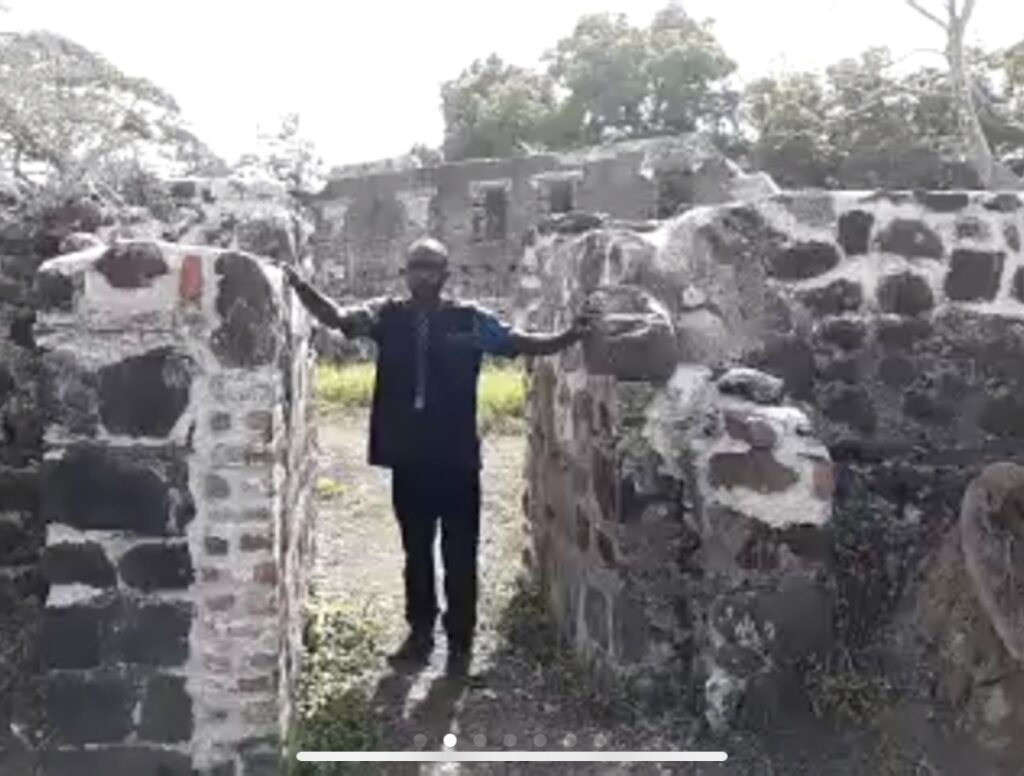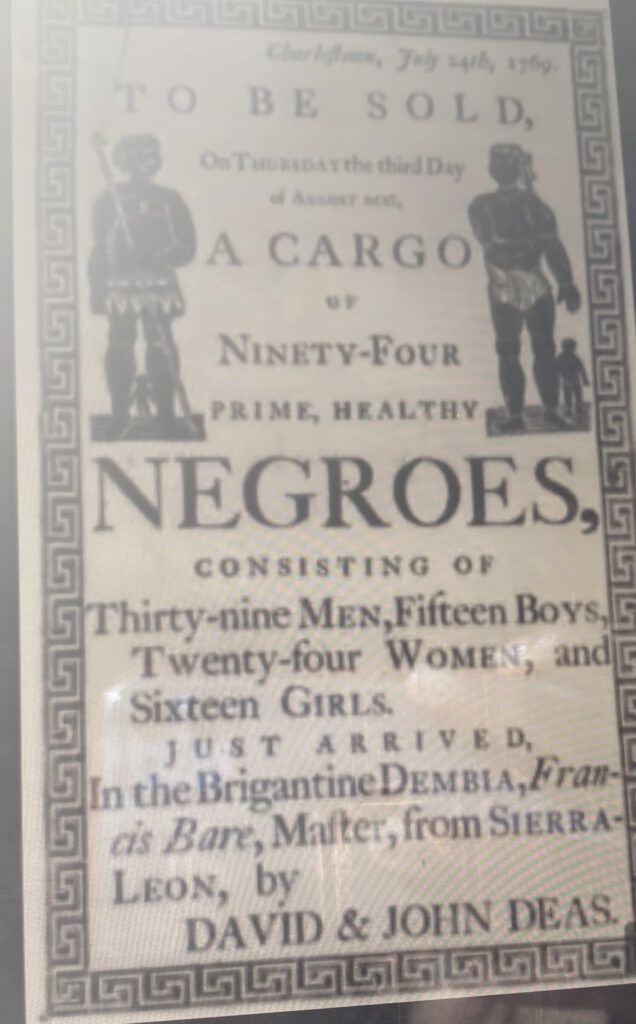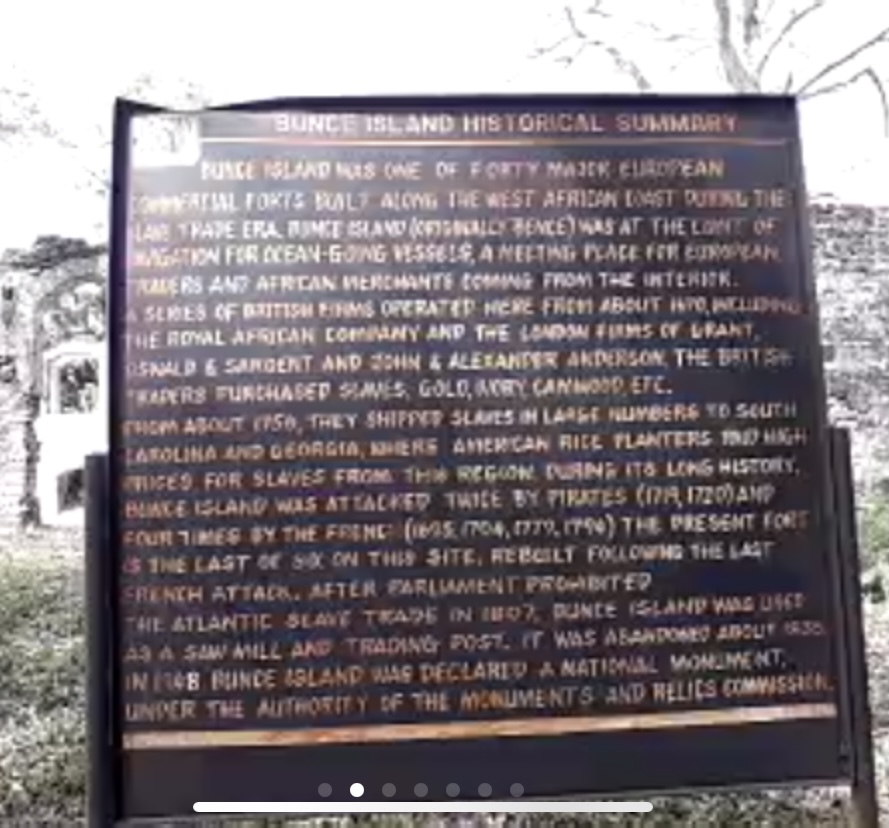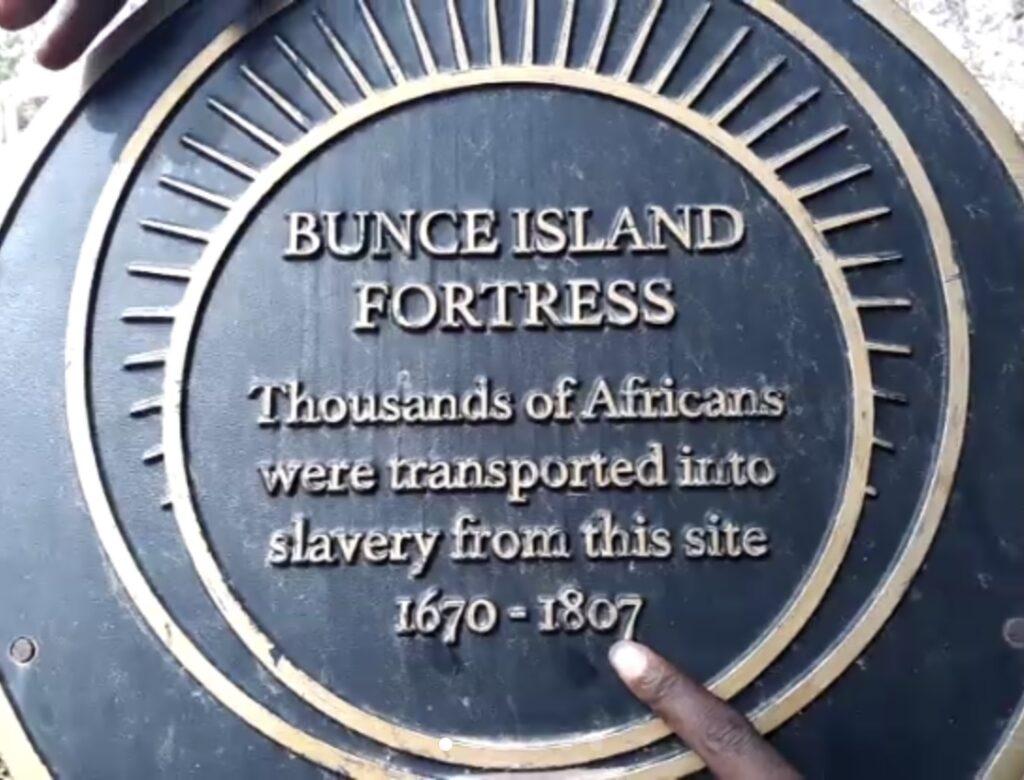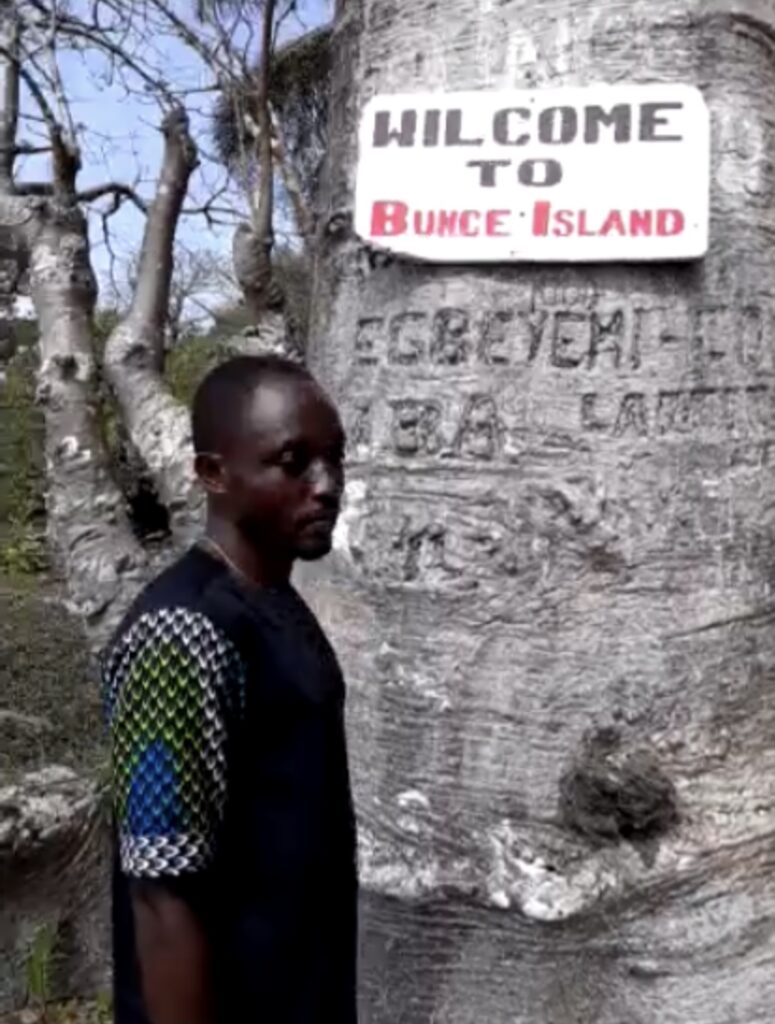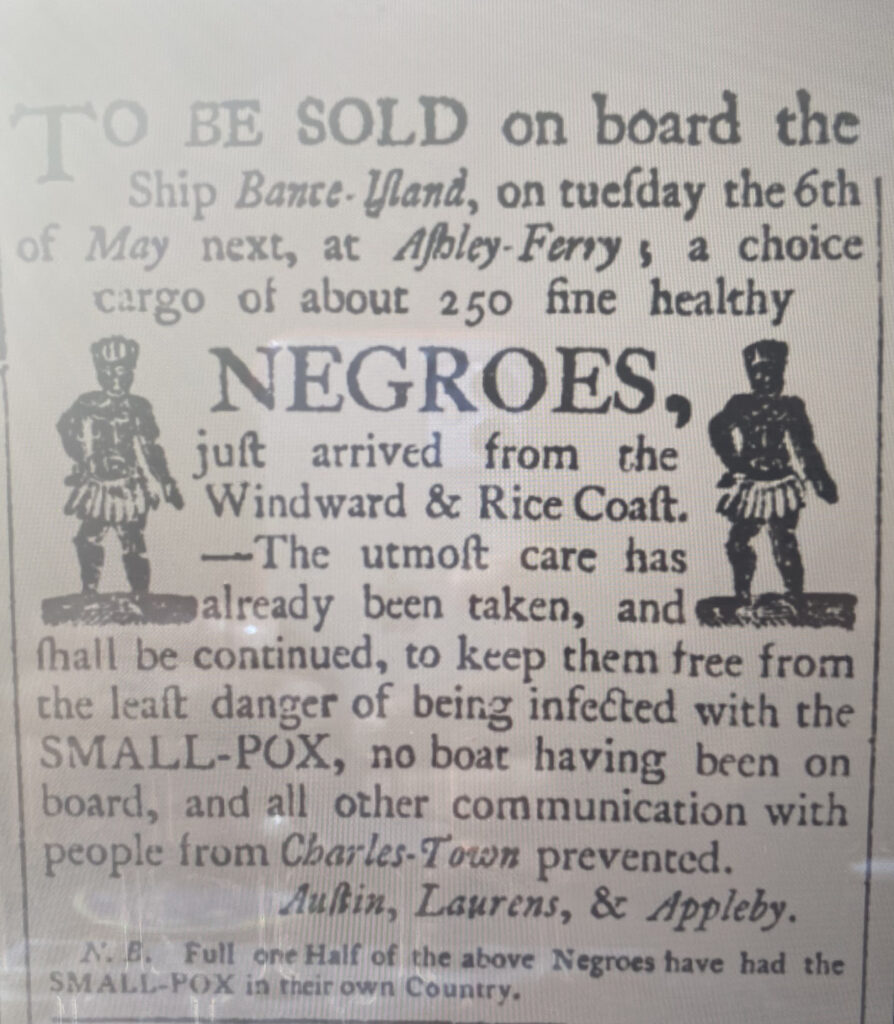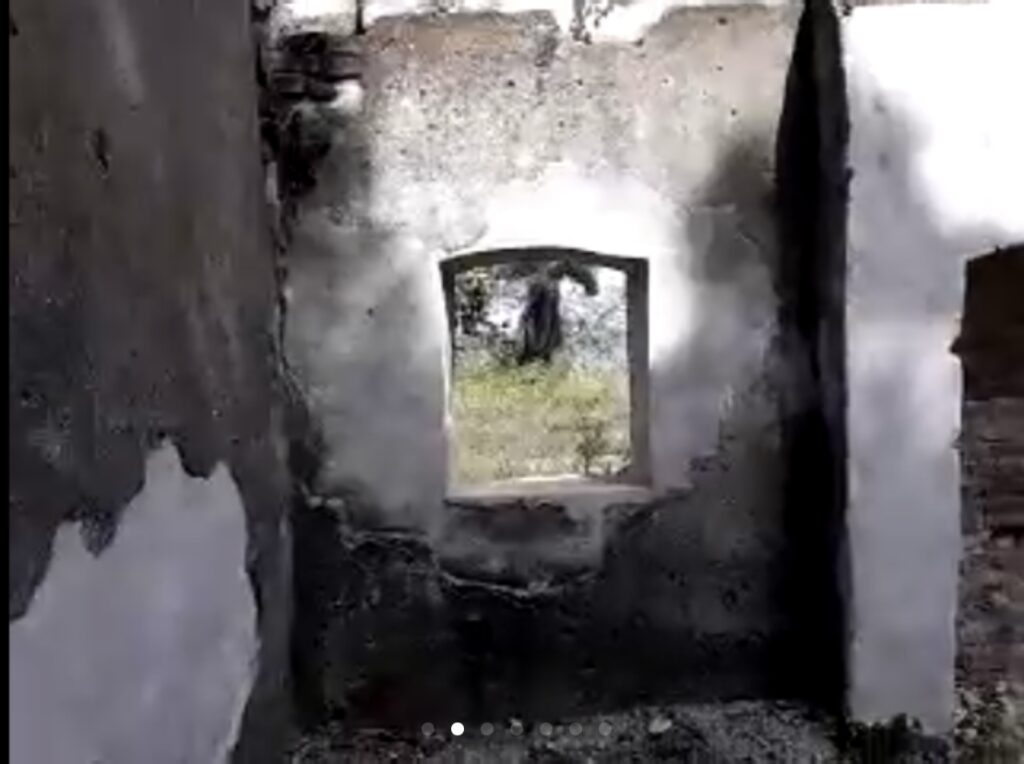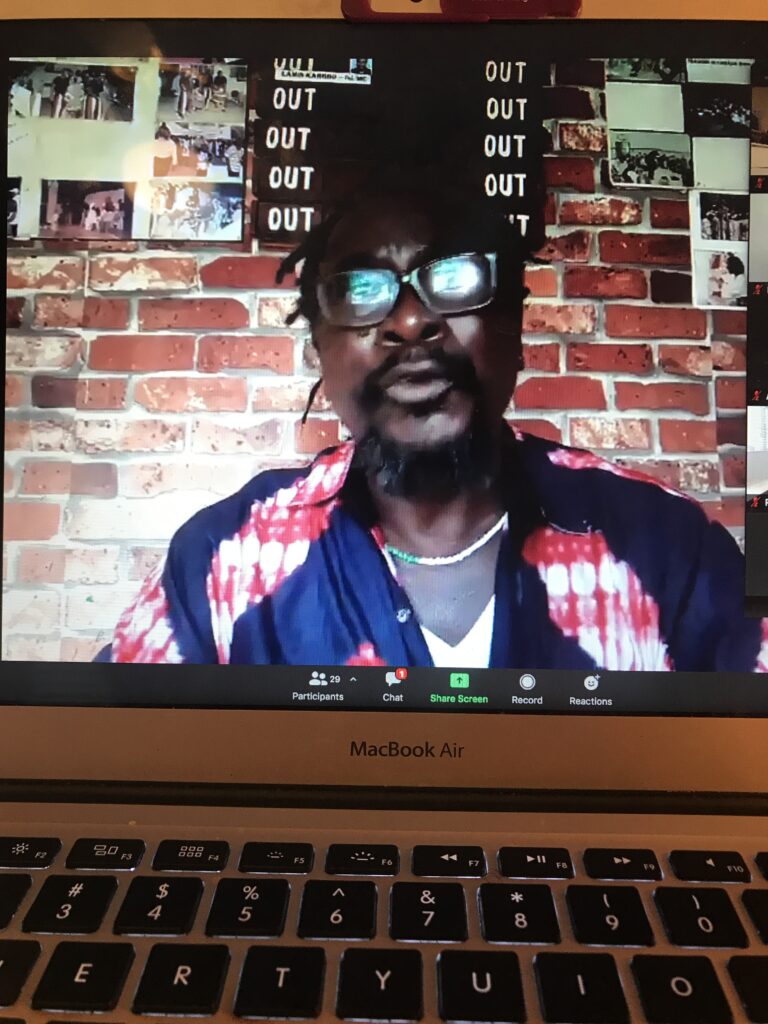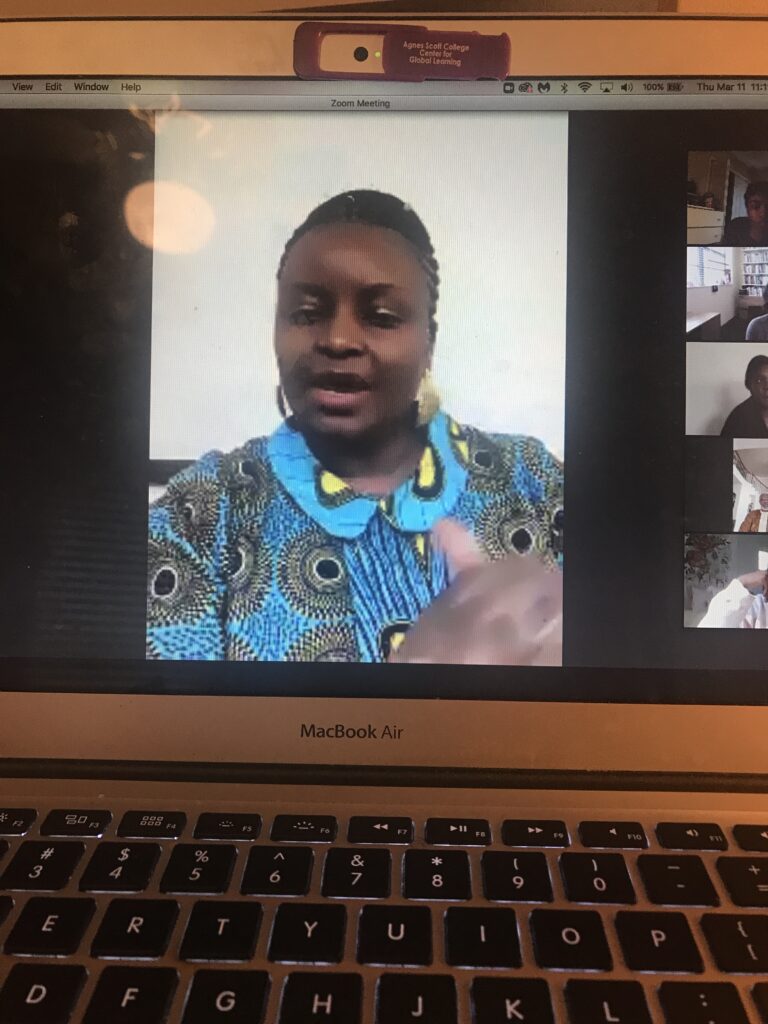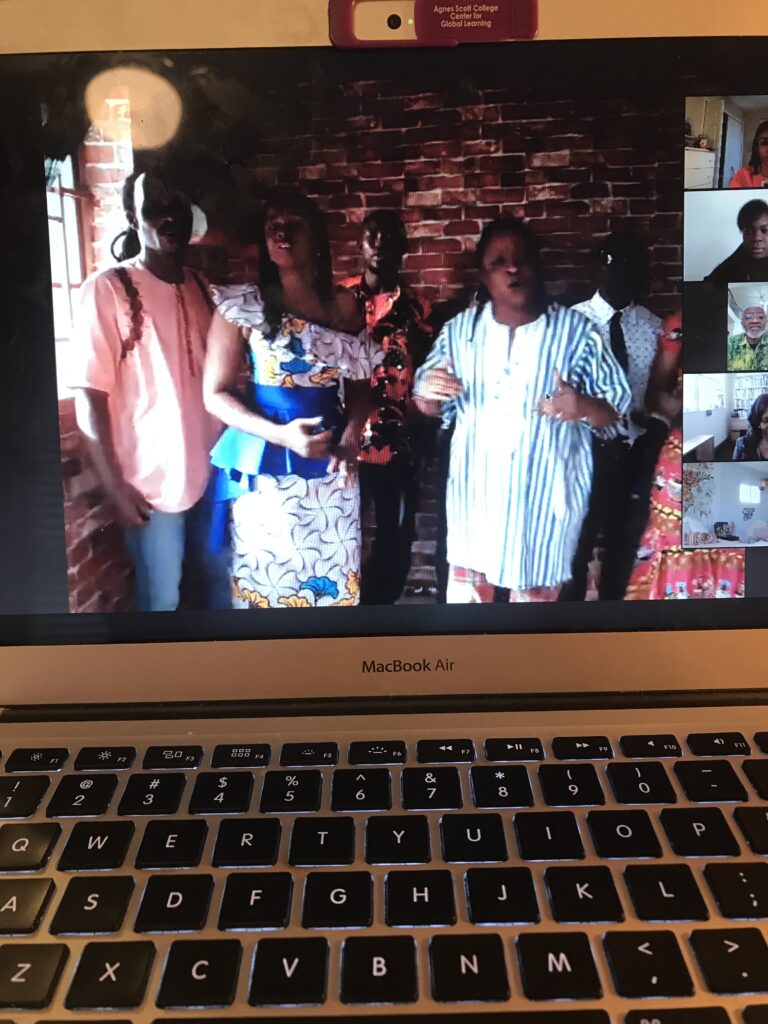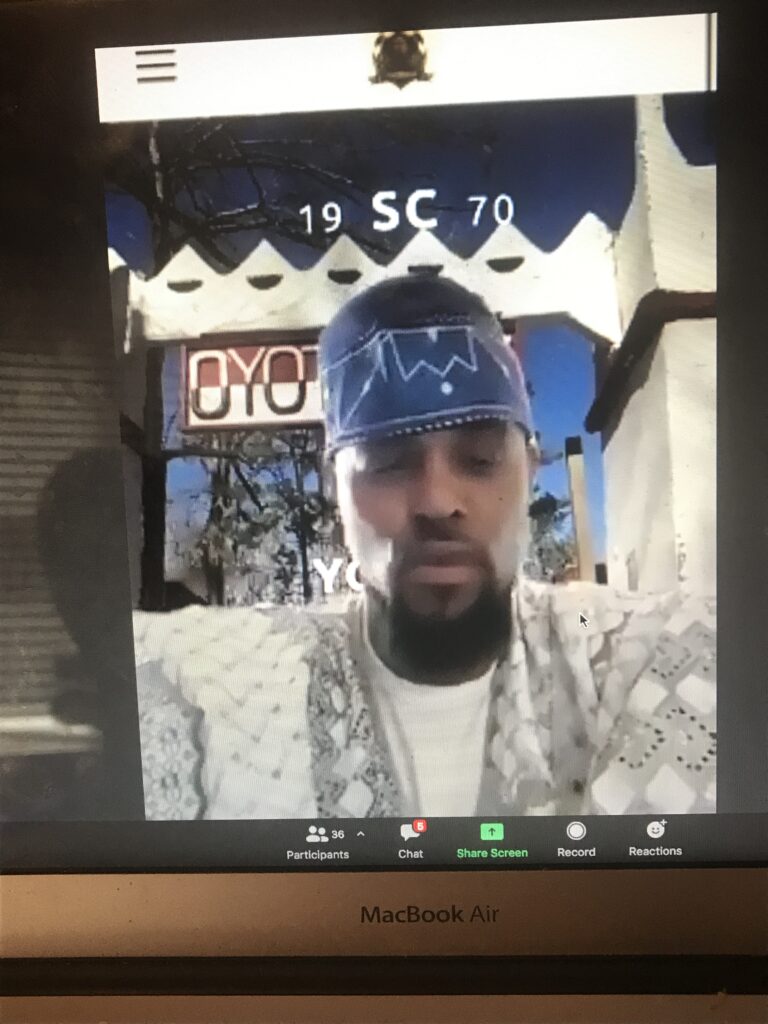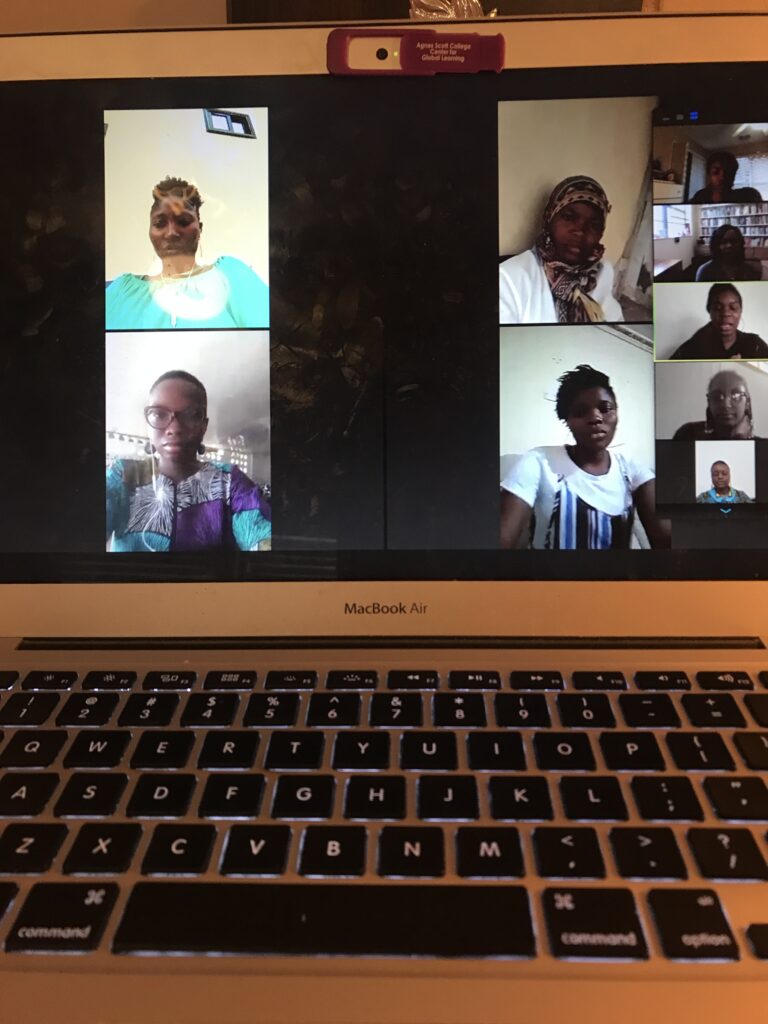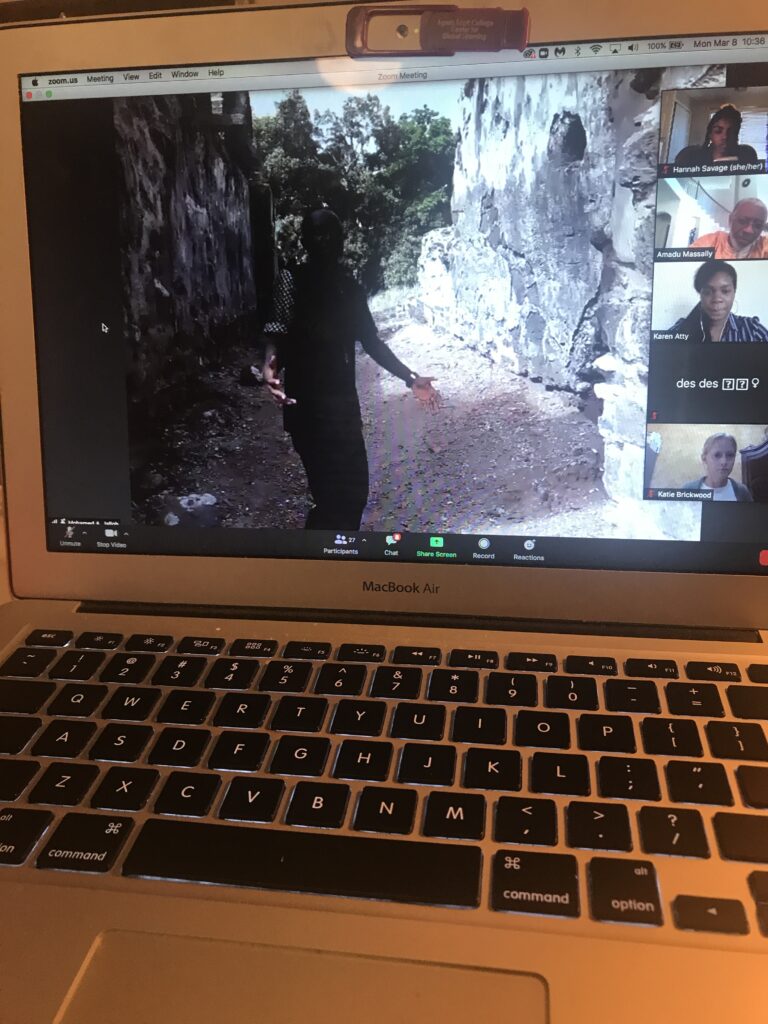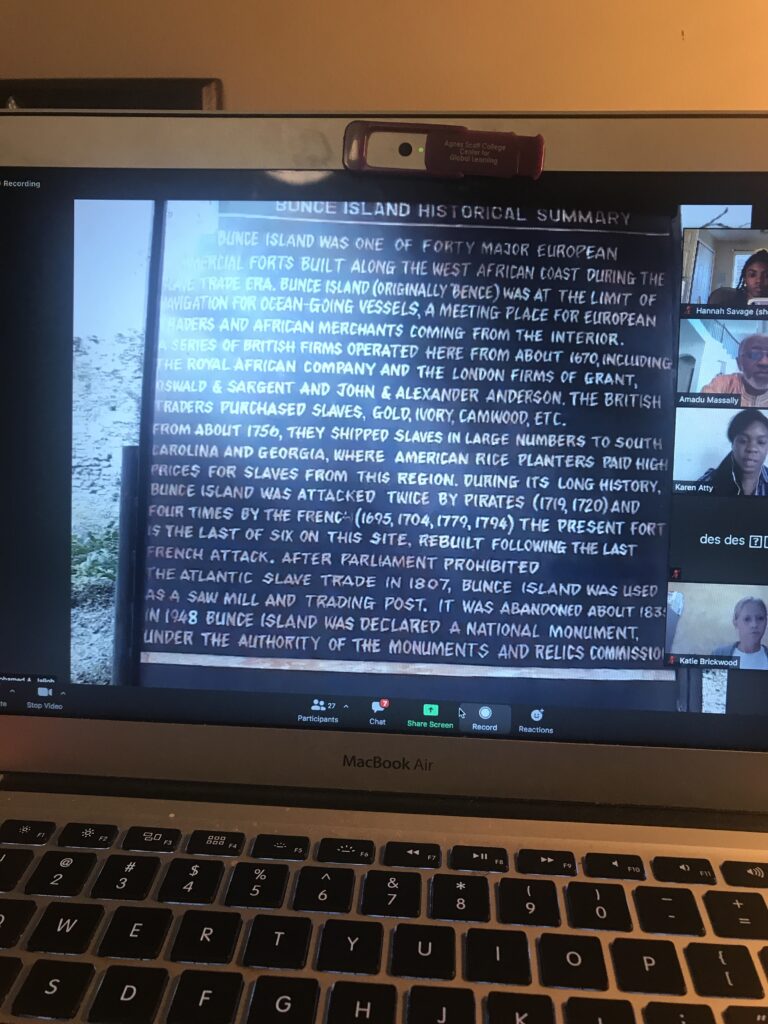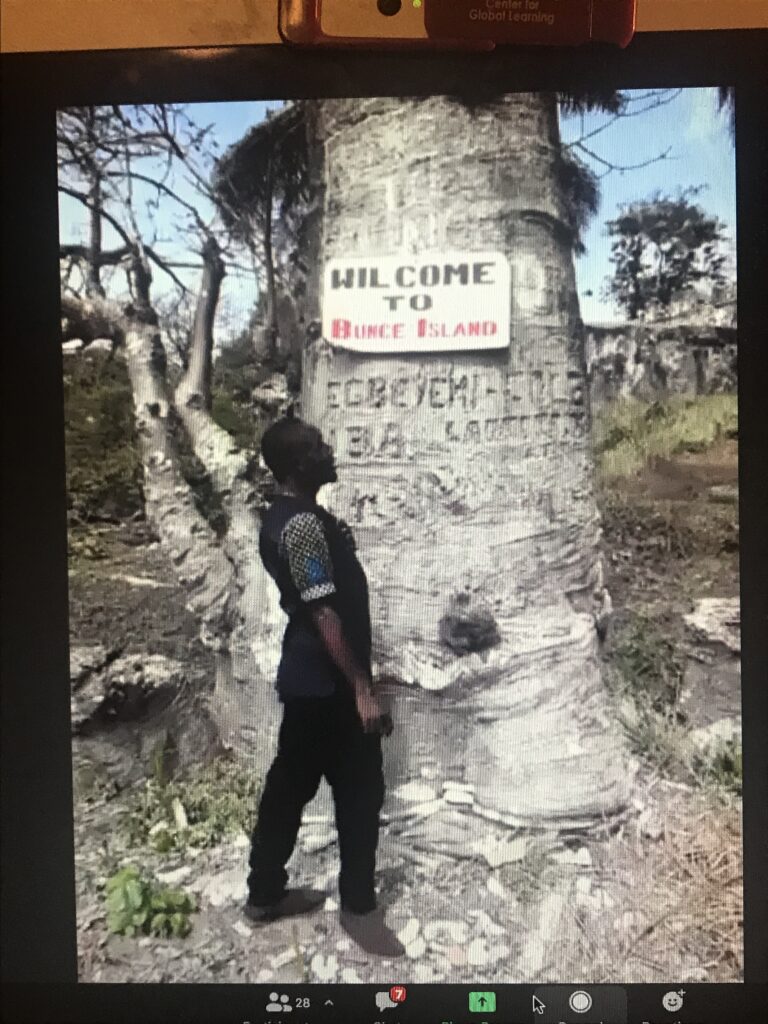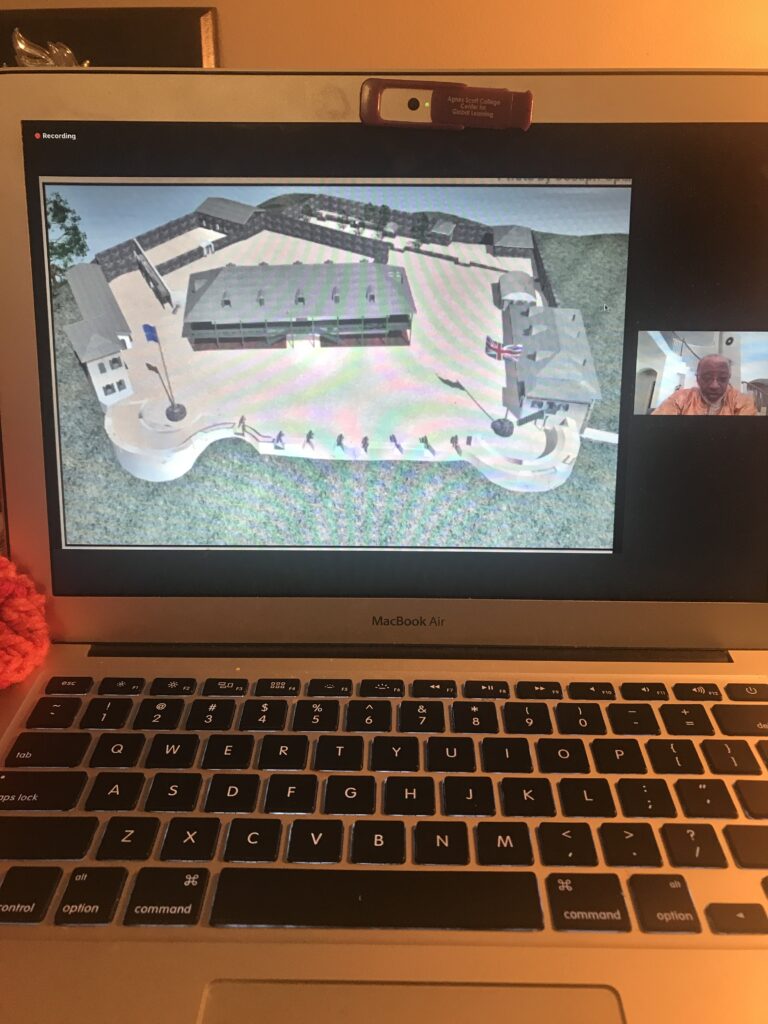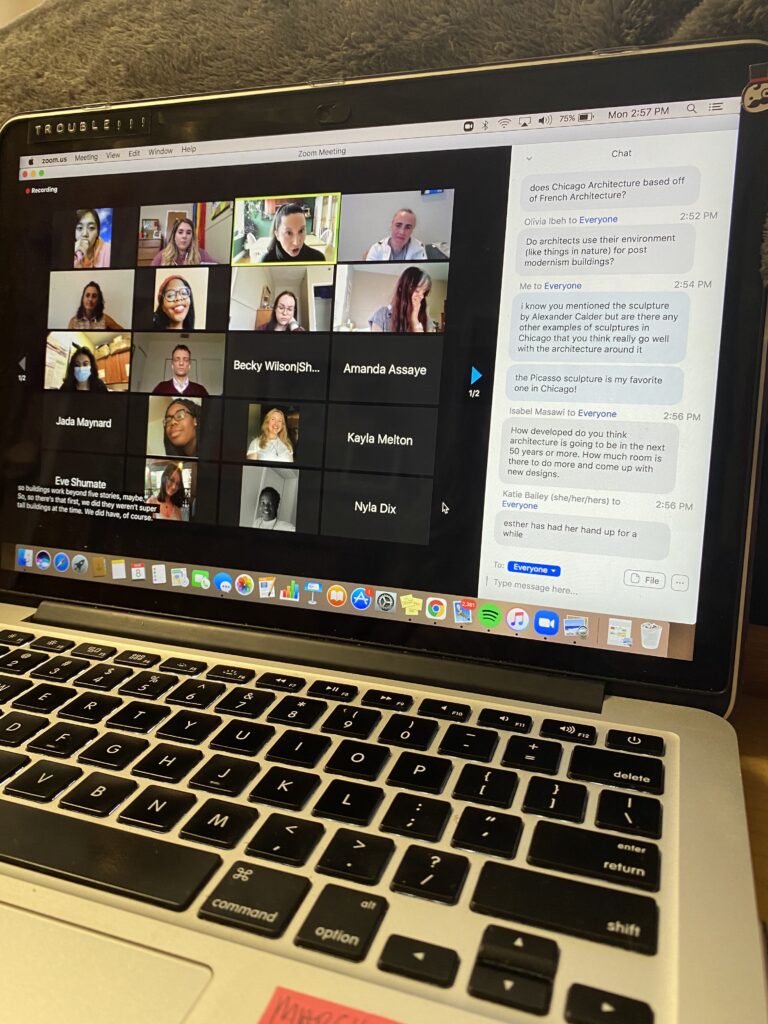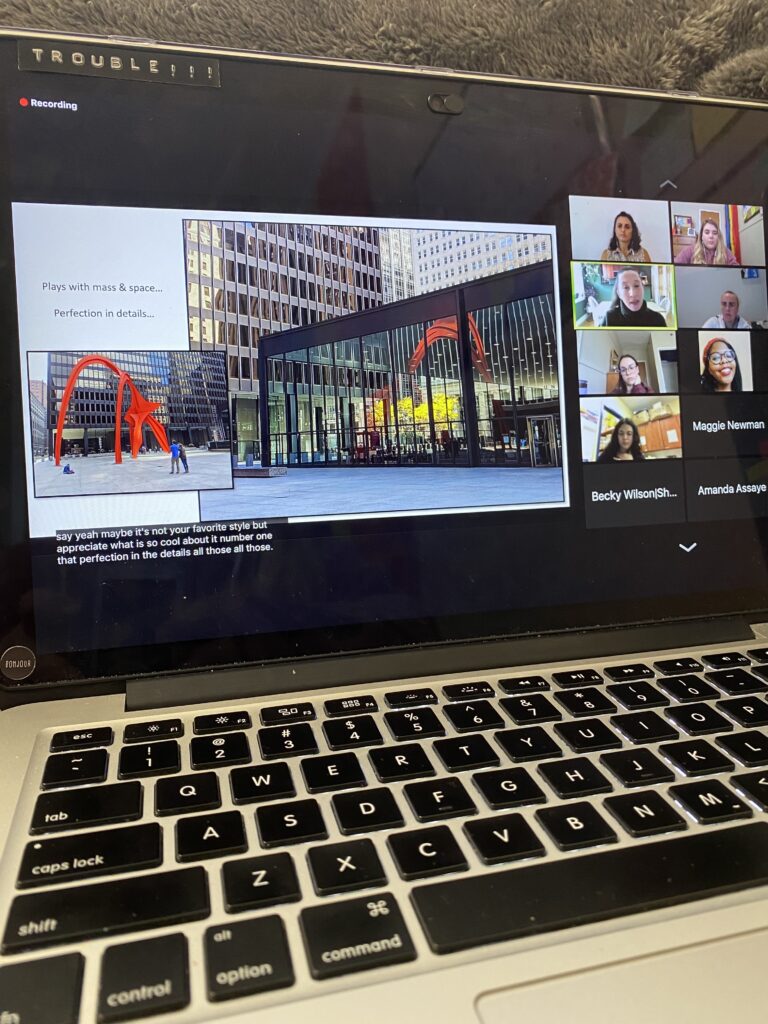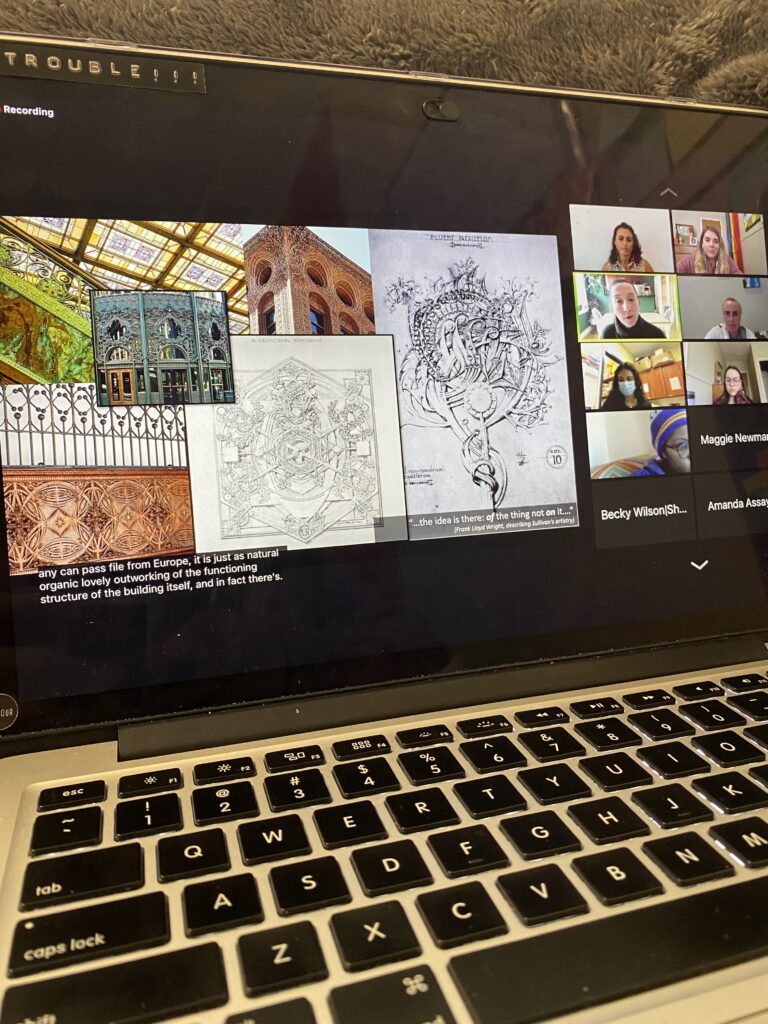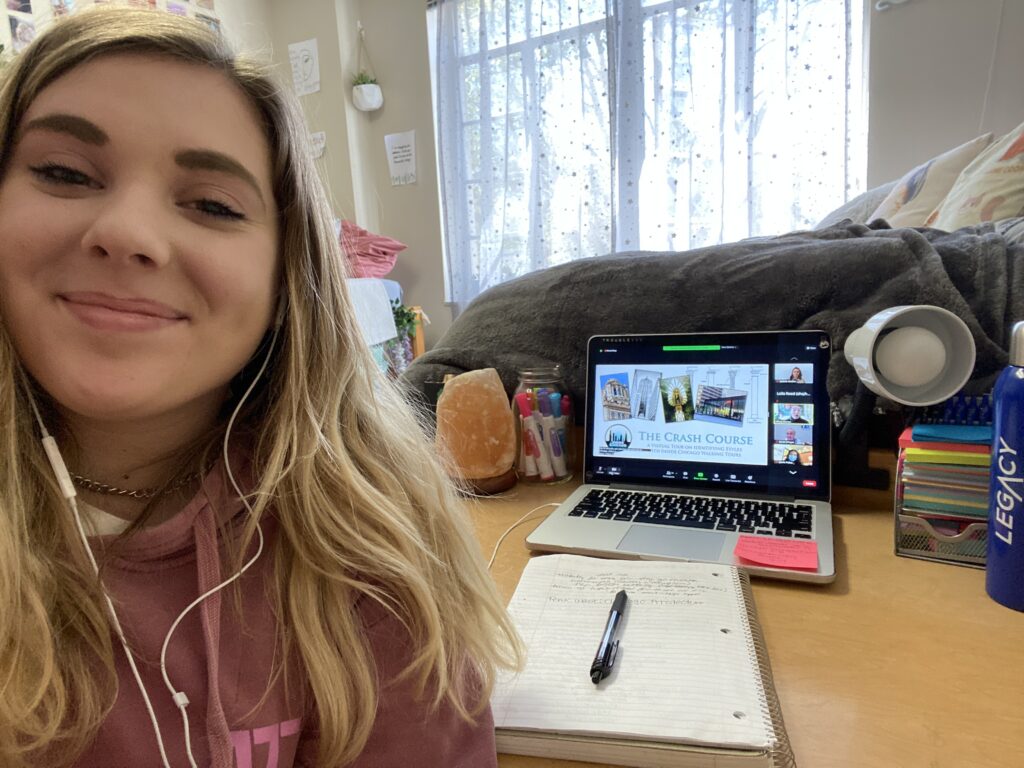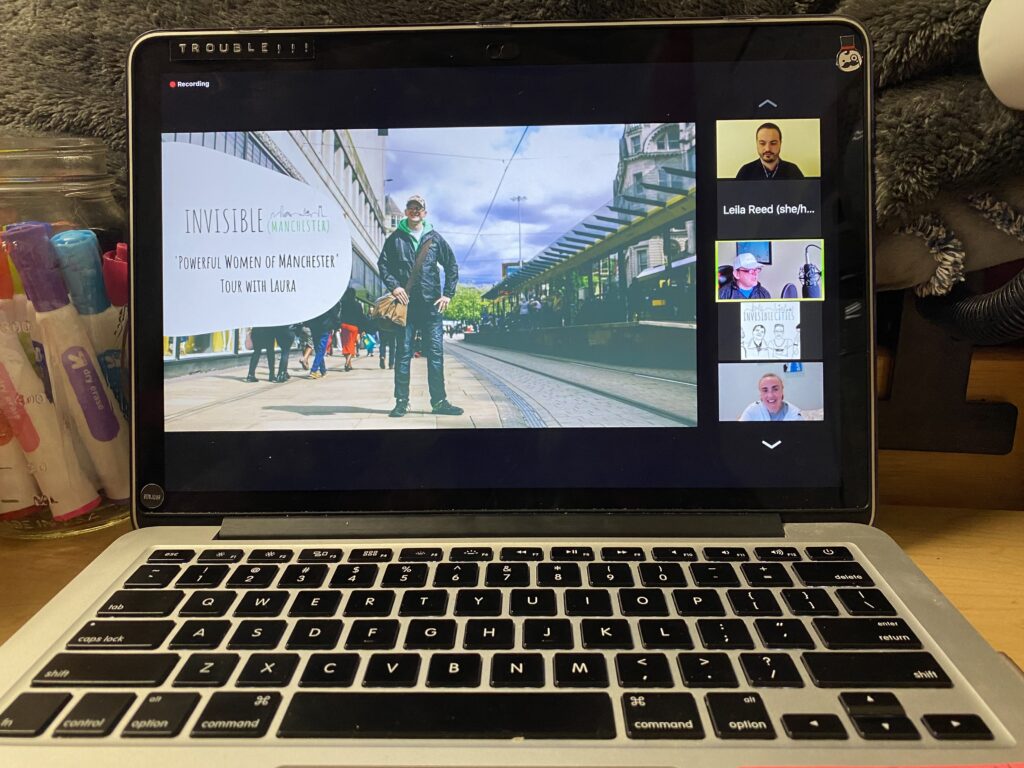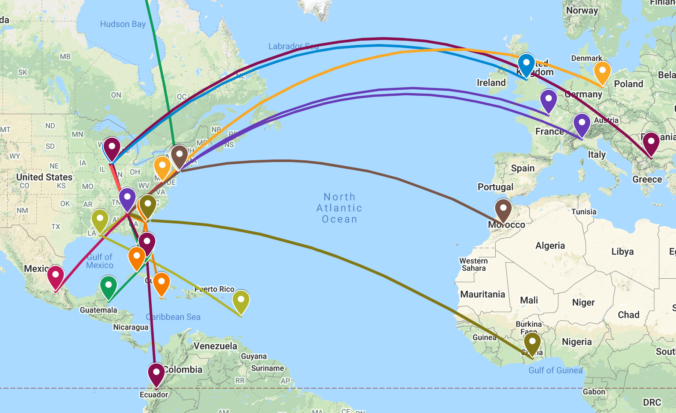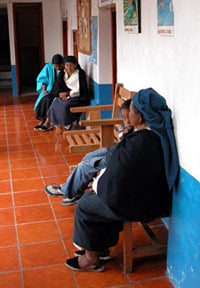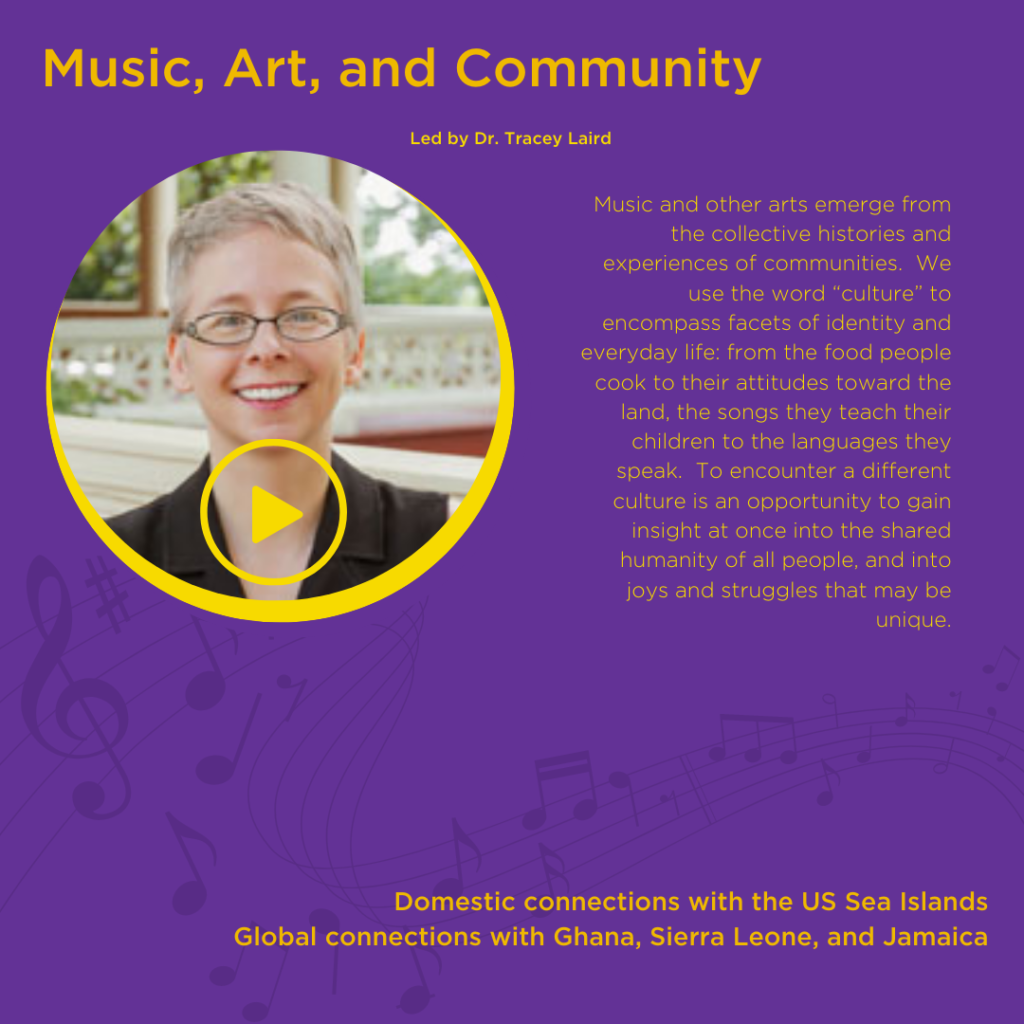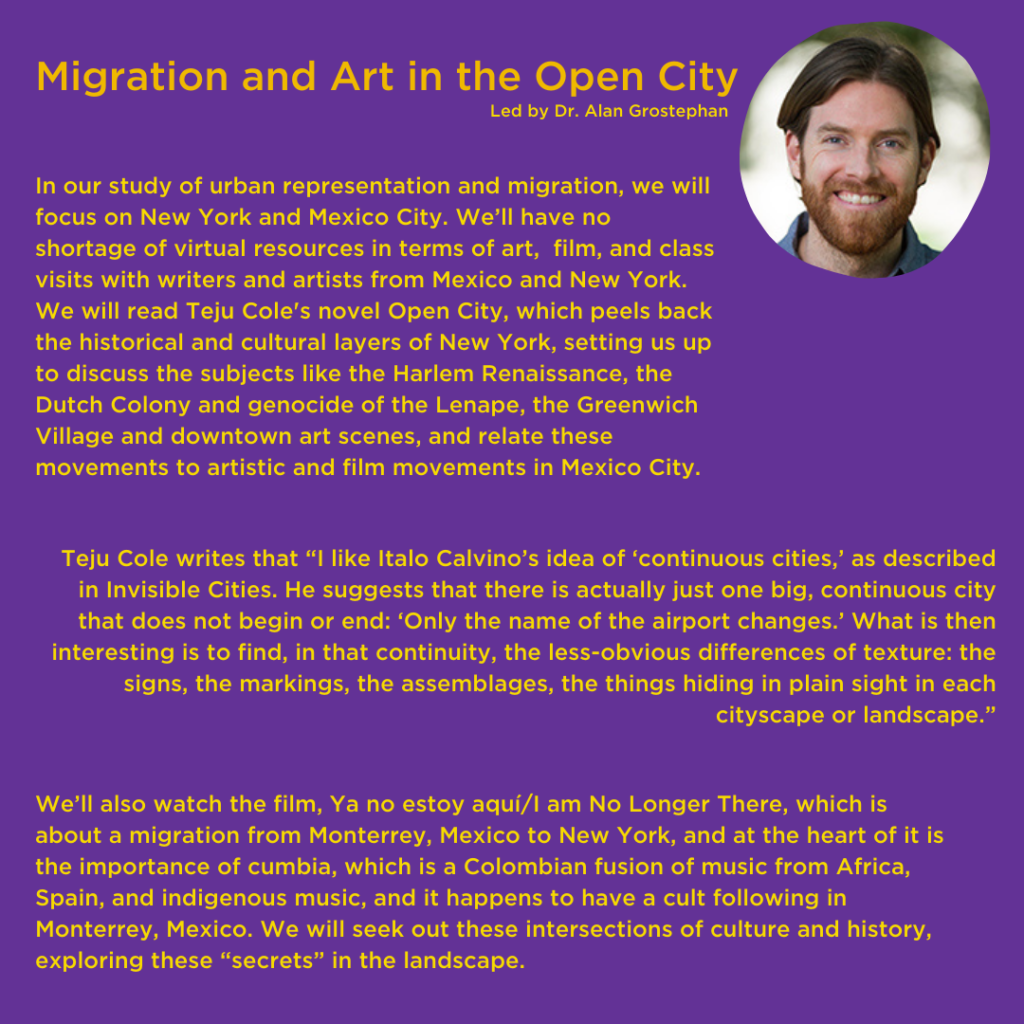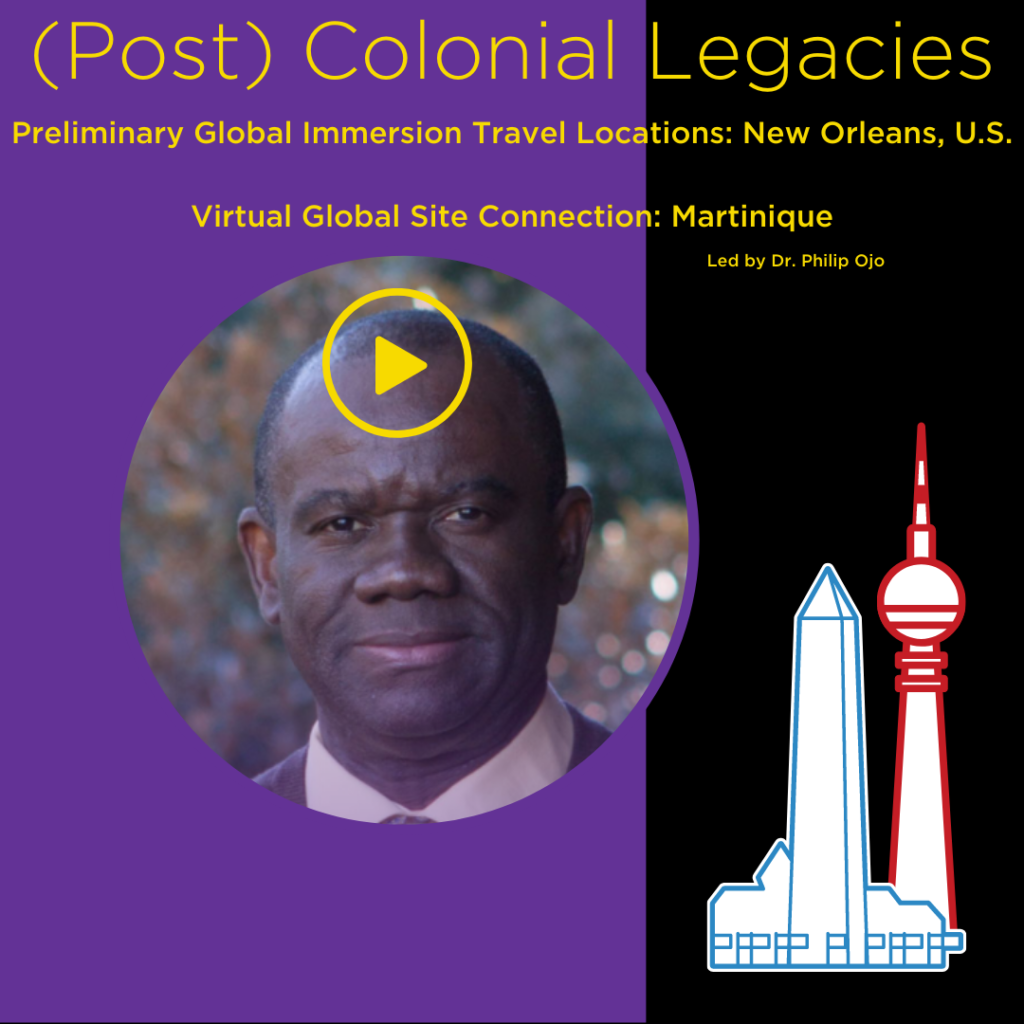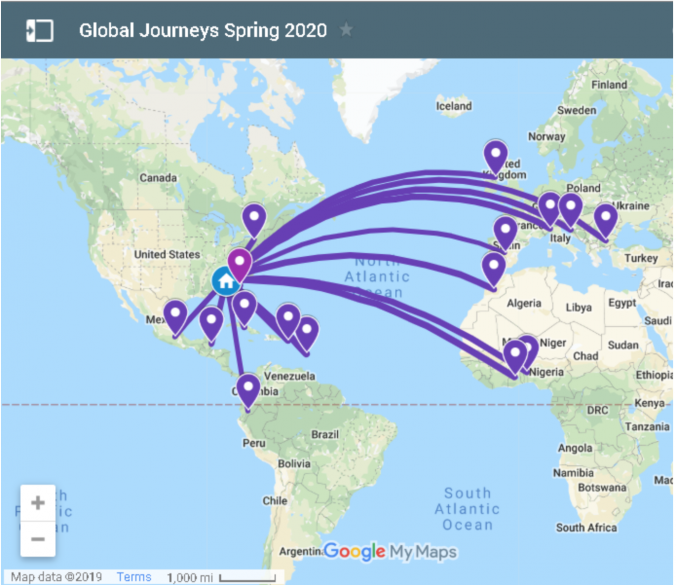The Center for Global Learning is excited to present the Global Journeys courses for Spring 2022! We know that many of you have been waiting eagerly for this moment, and so have we. Learn all about them below:
Art and Influence, Dr. Nell Ruby (Planned Global Destination: Navajo Nation)
- This course will focus on images, power and politics in the Navajo Nation. In addition to reading and writing about global patterns and power structures, we will study the impact of art on the recollection of history and the formation of culture. In addition to written work, we will use various materials to make visual, theatrical, musical, digital and experiential responses to what we learn about this inspiring indigenous culture.
(Post)Colonial Legacies, Dr. Philip Ojo (Planned Global Destination: Martinique)
- Within the framework of complex, interdependent relationships across the globe, this course examines the postcolonial legacies as a direct result of the colonial experience: how slavery and colonization have shaped and are still shaping the connections between marginalized and dominant cultures. The course focuses on the articulation of displacement, Eurocentrism, creolization, socio-economic inequalities, community, and contemporary global exchange patterns and networks. Thanks to the immersion experience (GBL 103), the course offers opportunities for global connections in forms of exchanges and conversations, experiential/service learning, as well as explorations of communities where (post)colonial legacies are most prevalent. The learning experiences will enable students to
- a) identify, describe and evaluate critical assumptions surrounding global processes, systems and issues;
- b) recognize varied perceptions and viewpoints of self and other cultures; and
- c) engage in meaningful intercultural communication.
The Art of Politics and the Politics of Art, Dr. Yael Manes (Planned Global Destination: Tuscany)
- This course will inquire into the relationship between art and politics by using Renaissance Florence as a case study. During the historical period known as the Renaissance, ruling classes from all over Europe used art to acquire power and perform their authority. The city of Florence was at the center of this type of political performance and Florentine artists were diligently sought after by the rulers of France, Hungary, Russia, and Poland, among other places. The course will offer an introduction to the history of political and artistic patronage in Renaissance Florence and will examine the roles that Renaissance painting
Cultural Mediterranean, Dr. Reem Bailony (Planned Global Destination: Morocco)
- The course posits the Mediterranean as a past and present space of cross-cultural encounter. In doing so, it encourages the following learning objectives:
- Challenge the bounded histories of the Mediterranean by exploring the transnational cultural, political, and economic dynamics that define its past and present.
- Explore the history and place of marginalized communities in the history of Morocco and the Mediterranean.
- Bring awareness to the effects of modern migration policies on shaping travel across the Mediterranean.
- Demonstrate global engagement through blog writing, class discussion, and course reflections.
Decolonizing Conservation, Dr. Jennifer Kovacs (Planned Global Destination: Alaska)
- This course will explore the history and future of conservation biology and ecology through the lens of decolonization. We will study the often problematic history of conservation efforts, with a particular focus on the establishment of national parks in the United States. We will contrast those historical efforts with more recent partnerships between government agencies, tribal councils, non-profit groups, indigenous communities, and other stakeholders especially in efforts to mitigate and the effects of climate change. Additionally, we will spend time exploring the often complimentary role that Traditional Ecological Knowledge (TEK) can play in ecology and the sciences. And finally, students will recognize the role they themselves can play in conservation projects through participation in a community science project with a critical/constructive eye to the impacts of ecotourism on communities.
Germany, Europe, and a Globalized Word, Dr. Graml Gundolf (Planned Global Destination: Germany/German-speaking areas of Europe)
- This course focuses on the role of Germany in a globalized world. How has Germany transformed from an empire to a dictatorship to one of the leading democratic countries in the European Union? How is Germany interacting with global developments in politics, science, culture? And how are the ideas and definitions of who and what is “German” changing in the context of today’s global world? These are some of the questions we will pursue in this course. Students will have the opportunity to engage with community and political leaders, entrepreneurs, and artists at sites such as Berlin, Leipzig, and Dresden.
Fashion, Ethics, and Capitalism, Dr. Willie Tolliver (Planned Global Destination: Paris)
- This course will focus on the role of Paris as a primary site of fashion creativity, innovation, commerce, history, politics, and controversy. Specific issues for scrutiny will include: fashion history, fashion theory, the fashion system, fashion capitals, film and fashion, and fashion as expression of gender and ethnic identities. The Paris travel experience will include such sites as the archives of iconic fashion designers, renowned fashion design schools, ateliers of fashion craftsmen, cultural institutions created by fashion houses, various environments of consumption, significant historical fashion locations, and vibrant fashionable contemporary immigrant neighborhoods. The course will finally investigate how fashion does or does not do social justice by considering such topics as fashion and globalization, fashion and ethics, the political dimensions of fashion, the impact of French colonialism, the dynamics of the fashion industry, race and racism in the fashion world, and feminism and fashion.
Identity, Globalization and Social Change, Dr. Mina Ivanova (Planned Global Destination: Bulgaria)
- This course examines the constitution of individual, collective, and diasporic identity and the impact of globalization on communities that have undergone profound political, economic, and social transitions. How does a group come to experience itself as a “People” or a “Nation”? What does it mean to share a transnational “European” or a diasporic identity? How is identity negotiated over time through major internal and geopolitical shifts? How do the forces of globalization, cultural, economic, and political imperialism shape local cultures and what form does resistance to them take? We will engage these questions through the case study of Bulgaria, an Eastern European country at an ever-shifting crossroads between “East” and “West,” tradition and modernity, communism and democracy. Apart from introducing students to the country’s history and culture, this course invites them to think critically about global issues as they are expressed in the many transformations the Bulgarian society has undergone in the past 150 years.
- This course approaches its subject primarily through the perspective of the communication discipline. We will immerse ourselves in intercultural learning about Bulgarian culture and communities through lectures, discussions, readings, and critical analysis of literary works, monuments, film, and other texts. These learning experiences will prepare students to (1) identify, explain, and analyze global themes, processes, and systems by drawing comparatively on examples from Bulgaria and other contexts, (2) compare and contrast the impact global processes on dominant and marginalized cultures through examples from their enrichment experience with Bulgaria and other contexts (3) engage in meaningful intercultural interactions that enhance their ability to engage across differences and to reflect on their own values, ethics, and assumptions.
Marronage, Freedom and Resistance, Dr. Regine Jackson (Planned Global Destination: Jamaica)
- Independent communities made up of people who escaped plantation life – called maroons — were created throughout the Americas, especially in Brazil, Jamaica, Haiti and Suriname. This class focuses on maroon societies in Jamaica as sites of resistance and freedom in the African diaspora. The concept of “marronage” will help us understand how strategies of resistance designed to escape or challenge racial oppression, gender-based violence, and capitalist exploitation in the past, continue to be significant in the present day. We will explore the social, political, economic, spiritual and cultural institutions formed by maroon communities in Charles Town, Moore Town and Port Royal, JA. We will learn about the alternative lifestyles and worldviews that come out of traditions rooted in continental Africa, but, at the same time, are grounded in the local environments where they developed and adapted to contemporary circumstances. We will explore related processes of place-making and cultural creation in a variety of forms. In short, the rich and complex history of maroon communities will be a prime example of the multiple geographies of resistance where oppressed groups struggle against domination, assert their self-determination, and claim space.
Music, Arts, and Community, Dr. Tracey Laird (Planned Global Destination: Sea Islands, U.S.)
- Music and other arts emerge from the collective histories and experiences of communities. We use the word “culture” to encompass facets of identity and everyday life: from the food people cook to their attitudes toward the land, the songs they teach their children to the languages they speak. To encounter a different culture is an opportunity to gain insight at once into the shared humanity of all people, and into joys and struggles that may be unique. In the Sea Islands, a coastal corridor of barrier islands protecting the southeastern US coast, distinct ecology and geographic isolation have nurtured a distinctive community. The Gullah Geechee people are descendants of Africans once enslaved on the rice and indigo plantations of the Atlantic coast, and their contemporary traditions maintain historical links to life and culture of coastal western Africa.
- This course will explore the Gullah Geechee community with connections to music, arts, religion, environmentalism, governance, education, and other aspects of identity, within the larger context of American history. Literature, film, music, podcasts, and readings will prepare us to experience distinct traditions like seagrass basket weaving, to tour sites related to critical issues of Gullah Geechee life including climate change, tourism, cultural preservation, and economics, and to interact with community leaders. Throughout the course, we will question our own roles as travelers, seeking to recognize how preconceptions and personal biases may color our interactions with people. At the same time, we seek to learn about the rich heritage of Gullah Geechee people, and the historical and current challenges shaping their lives in ways both familiar and distant from our own.
